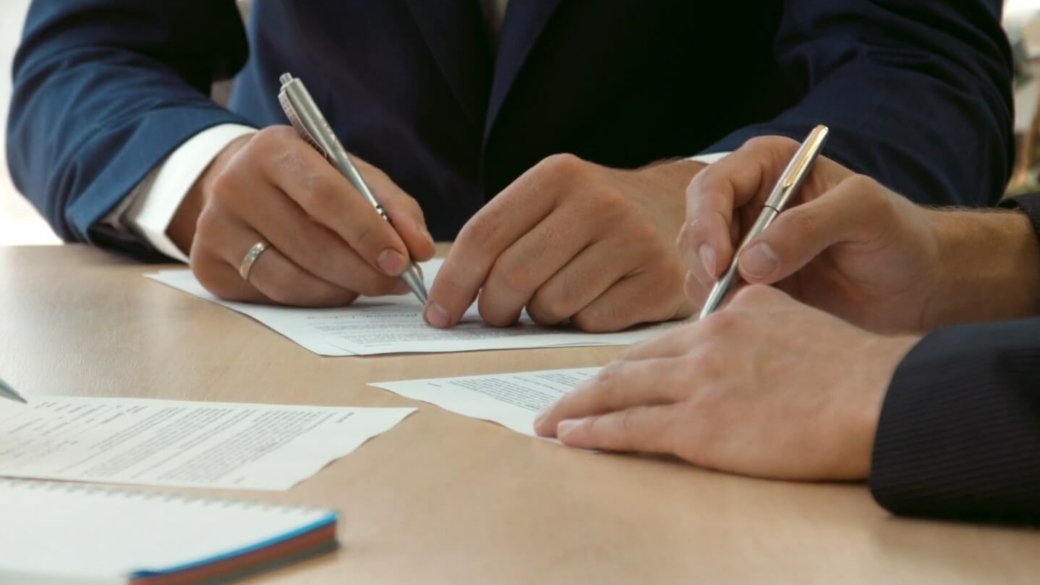Someone can live with you without being on the lease. But if they stay with you for an extended period of time, you will need to add them to your lease. The age of the person in question is also important, and the state you live in.
Can a Guest Live with you Without Becoming a Tenant?
Someone moving in with you might not seem like a big deal. However, your landlord might see it as a problem (if they find out).
So what happens if someone is living with you but they’re not on the lease? This depends on where you’re staying, and what your lease agreement entails. This article will give you all the ins and outs, and tell you why it’s typically just best to get the person in question added to the lease.
Read Also – Can a Landlord Evict You for Having Overnight Guests?
How long is the person staying with you
This is probably the most important factor when it comes to deciding to add someone to the lease or not. The common rule of thumb is if someone is staying with you for longer than 14 consecutive days, you should contemplate adding them to the lease.
However, in Pennsylvania the rules are different. Even if the guest in question contributes payment towards bills or rent, they become a tenant.
There could be a section in your lease agreement about how long a person can stay with you. Make sure to read this first, as every case is different.
Use of Premises Clause
When a tenant is trying to understand if someone can live with them without being on the lease, the answer can typically be found in the “Use of Premises” clause in your lease agreement.
It’s common for landlords to include a section in this part of the lease which refers to guests staying on the property. For example, the lease agreement could state that a guest can stay on the premises for a maximum of 14 nights within a 6-month period.
If your lease has this Use of Premises clause, it’s a good indicator for how long someone can stay with you before you need to add them to the lease.
Source – https://www.baymgmtgroup.com/blog/find-unauthorized-person-rental-property-2/
How to add someone to the lease
As mentioned, there are risks to having someone live with you without being on the lease, so we’re going to walk you through how to add an extra person to your lease.
Now you might be worried about asking your landlord if you can add someone to the lease. The best way to do this, is by having an open conversation with your landlord about the reasons why you want to add this person to your lease.
If you’ve had a positive relationship with your landlord before asking this, then it will increase the chances of your landlord saying yes.
It’s best to add the person to the lease before they’ve moved in. If your landlord finds out they’ve been living with you for an extended period of time before asking you, they will likely be annoyed and lose trust in you.
It should also be noted that if the landlord accepts adding the person to the lease, they also have the right to increase the rent. However, this must be done by adhering to rental price control laws in the local area.
There’s a good chance your landlord will increase the rent if your utility bills are included in the total rent payment. This is because with an additional person permanently living on the premises, hot water and electricity usage will increase, therefore costing the landlord more money.
The landlord will also likely want to carry out background checks on the new tenant, and go through the whole process like they did when you initially moved in.
Watch the video below to find out more about why your landlord will likely prefer to add the person to the lease instead of evicting you all. This should hopefully help you feel less nervous when speaking to your landlord.
Laws and Regulations in Different States
If you have someone living with you without being on the lease in California, your landlord will have the power to evict you as the original tenant for breaking the lease rules. The person living with you cannot stay for more than 14 days spread across 6 months, or seven successive nights.
In New York State, the rules are different to California. A tenant can take in one roommate without any issues. The landlord cannot say no, as long as the apartment is large enough to accommodate an extra person, and you are the only person living in the rental property.
All you need to do in this situation, is communicate to your landlord that the roommate is moving in/has moved in, within 30 days of them relocating to your apartment.
In Alabama, a guest is no longer considered a guest after staying in the rental property for 30 consecutive days. After this time, they are tenants and should be added to the lease.
In states such as Idaho, Delaware, Iowa, and New Jersey, the length of time guests can stay in your home before they should be added to the lease is detailed in the lease agreement.
Source – https://www.apartments.com/rental-manager/resources/leases/when-does-guest-become-tenant-rental-home
Can your Partner Live with you without Signing the Lease?
This is likely a situation that a lot of you reading this are in. Your partner is slowly staying over more and more often, and you’re concerned that they’re staying too much and your landlord won’t like it if they find out.
Your partner will be treated like any other guest if they were to stay with you for an extended period of time. If your lease agreement has a Use of Premises section like previously mentioned, and your partner staying over is exceeding that, then your landlord might have the right to evict you.
If you and your partner decide to take the next step, and they move in with you permanently, it’s extremely important to inform your landlord, and ask if your partner can be added to the lease.
If your partner moved in with you permanently, and moves all of their stuff into the property too, it’ll only be a matter of time until your landlord finds out. They could be totally okay with it though. Some landlords’ only concern is if rent is paid on time, so they won’t be bothered about more occupants.
But if you don’t communicate with your landlord, and if you violate the lease agreement, yourself and your partner could end up getting evicted.
There is also a chance that your lease agreement states the number of people that can live in the 1-bedroom apartment, and if the answer is just one, you might struggle to get your partner added to the lease.
At What Age Does a Child Become a Tenant?
In most cases, it makes sense to add your child to the lease when they are 18 years old when the lease comes up for renewal. Your lease agreement will likely state that anyone permanently living in the property over the age of 18 should be on the lease.
However, there are rare cases where your landlord may ask for children over the age of 10 to be added to the lease. Some landlords like to carry out background checks on your children too, to ensure there is no one potentially dangerous living on the premises.
It’s good practice to have your child on the lease as an occupant, or anyone that’s living with you that’s not accountable for paying rent or carrying out other tenant responsibilities.
Why it’s beneficial for Adult Children to Sign the Lease
The adult child should consider signing the lease because they will then be treated as a tenant by the landlord, and by the law if it comes to it.
Being a tenant makes it harder for the landlord to evict you, so when you consider this, it makes sense to have anyone over the age of 18 that’s living with you sign the lease.
As a parent, getting your adult child to sign the lease will also give them some much needed responsibility. All of a sudden, they’re also liable if any issues arise, which might mean they take better care of the property.
Another important benefit of your adult child signing the lease is it then means when it comes to them moving out, your landlord could give them a reference, which will enhance the chances of your child finding a rental property to move into.
Why Would a Landlord Want Adult Children to Sign the Lease?
The landlord will want the adult children that are over the age of 18 to sign the lease because they will want the person to adhere to the lease agreement. It is more difficult for the landlord to enforce rules on someone that hasn’t signed the lease.
Why as a Tenant it’s Important to get your flatmate to sign the lease
As the sole tenant, you are directly responsible for paying rent, and covering any damages to the property.
This means if the person staying with you were to damage the property in any way, the landlord will be asking for you to cover the costs, and not your friend. Because the person staying with you is not on the lease, they will not be held responsible.
Can a Tenant Remove an Occupant that’s not on the Lease?
The rights of an occupant are different to the rights of a tenant. As the occupant has not signed the lease, the tenant has more power and holds all the cards.
This means that if you (the tenant) have someone living with you that’s not on the lease, but they’ve overstayed their welcome and you want them to leave, you have the right to kick them out.
You might run into complications if the person in question has been staying with you for a really long time (1 year +) as they might be able to argue they have stayed long enough to be classed as a tenant.
If you do get kicked out and have nowhere to go, here’s the best solutions to help you find your next place to stay.
Final Thoughts
What you can take from this. is if your friend/partner or whoever is in question is looking to move in permanently for several months or longer, get them added to the lease. It will prevent a lot of potential issues down the line, and also cover your back, their back, and your landlords back, too.
For someone that isn’t planning on living with you for long, it’s fine for them for not to be added onto the lease. Just make sure their stay doesn’t extend over the maximum guest stay period that’s stated in the lease agreement.
People Also Read
Can an Apartment Reject You for Misdemeanors?


